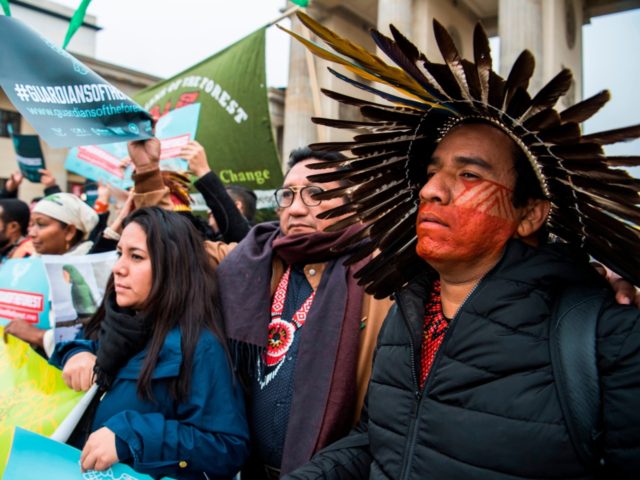The Vatican’s upcoming major meeting on the Church in the Amazon region centers on indigenous traditions and integral ecology, leading some critics to suggest that the summit is pursuing a “neo-pagan agenda.”
Titled “Amazonia: New Paths for the Church and for an Integral Ecology,” the preparatory document for October’s synod of bishops stresses the region’s biodiversity and the ecological crisis wrought by “prolonged human intervention” in the area.
In its first part, the text explores the “identity and cries of the pan-Amazonia” mostly in terms of its ecological resources, noting that the Amazon Basin is home to “one of our planet’s largest reserves of biodiversity” while encompassing “more than a third of the planet’s primary forests.”
Decrying the evils of colonization, the document expresses a deep nostalgia for indigenous, pre-colonial traditions, untainted by European Christianity and culture.
The document states that “indigenous peoples have experienced severe external threats ever since the first contact with the colonizers,” against which they have “fought to defend their lives and cultures, territories and rights, and the life of the universe and of all creation.”
“Today, unfortunately, traces still exist of the colonizing project, which gave rise to attitudes that belittle and demonize indigenous cultures,” the text declares.
In this context, present-day Christian missionaries are presented as defenders of indigenous culture and customs rather than preachers of the gospel of Jesus Christ. When it does eventually get to the question of evangelization, the document stresses the “universal values” found in the Christian message and expressed in terms of an “ecological conversion,” rather than its salvific uniqueness.
The text also underscores Pope Francis’ concern for migrants, lamenting that “an attitude of xenophobia and criminalization of migrants and displaced persons is growing throughout the Amazon region,” a situation that “leads to the exploitation of Amazonian populations, who become victims of the changing values of the global economy, for which profit has higher value than human dignity.”
The second part of the text explores the “serious problems caused by the attacks on life in the Amazon,” an aggression towards this “vital zone of Mother Earth and its inhabitants” that threatens their “subsistence culture and spirituality.”
“The first level of articulation for authentic progress is the intrinsic link between the social and the environmental spheres,” the text states. Since human beings are part of the ecosystems which facilitate the relationships that give life to our planet, caring for them – given that everything is interconnected – is fundamental to promoting the dignity of each individual, the common good of society, social progress, and care for the environment.”
The third part of the text deals with the “prophetic dimension” of the Church’s presence in Amazonia, which aims at “establishing dialogue with the spirituality of the great religious and cultural traditions.”
“Consensus is needed around a basic agenda regarding integral and sustainable development,” the text insists, “which includes sustainable livestock and agriculture; non-polluting energy; respect for the identities and rights of traditional peoples; and drinking water for all.”
This approach “must care for the environment and for the lives of the most vulnerable,” the text states, and address the “complex crisis which is both social and environmental.”
In his critique of the working document, Chilean author José Antonio Ureta has asserted that the text represents a “total opening of the gates of the Magisterium to Indian theology and eco-theology,” which includes “clearly pagan” and “pantheistic elements of belief.”
The document exalts Indian theology to such an extent that it limits the Church to “dialoguing” with the indigenous people rather than seeking their conversion, and calls on the Church to “enrich herself with clearly pagan and / or pantheistic elements of belief,” Ureta said.

COMMENTS
Please let us know if you're having issues with commenting.